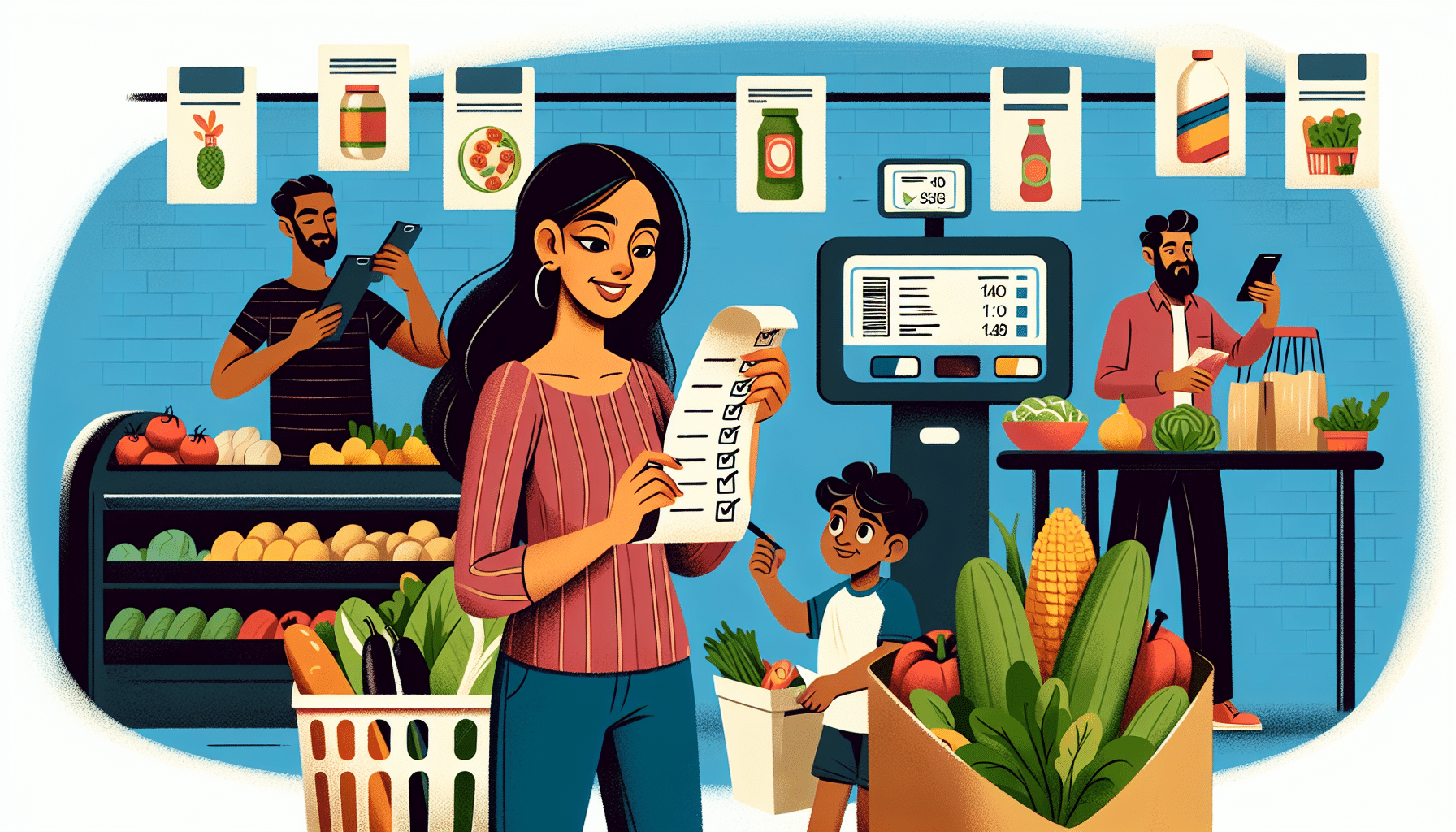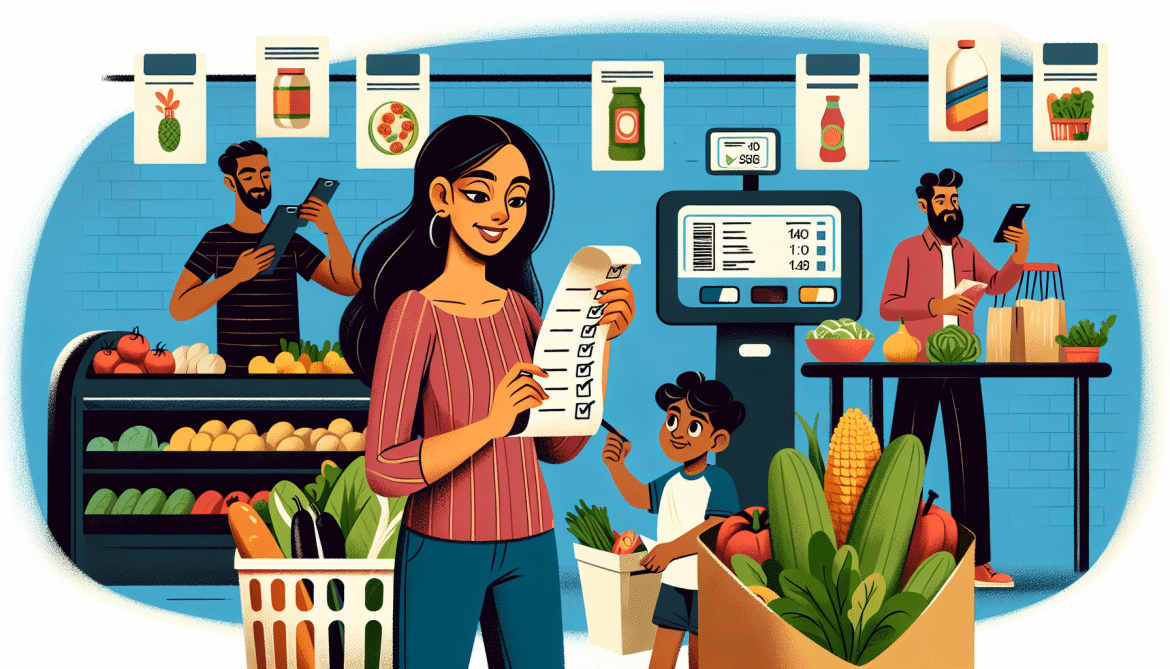Are you looking for ways to save money on your grocery shopping? You're not alone. With rising food prices, it's important to find ways to stretch your budget while still providing nutritious meals for you and your family. In this article, we'll share some valuable tips for grocery shopping on a budget. From creating a grocery budget and sticking to it, to taking advantage of sales and coupons, we've got you covered. By implementing these strategies, you'll be able to save money without sacrificing the quality of your meals. So, let's get started and discover how you can become a savvy grocery shopper!
Review Your Pantry
Before heading to the grocery store, take the time to review what you already have in your pantry. It's easy to forget about those cans of soup or boxes of pasta hiding in the back, and you don't want to end up buying duplicates. By checking your pantry first, you'll not only save money by avoiding unnecessary purchases, but you'll also be able to plan your meals based on what you already have available.
Only Buy What You Need
Once you've taken stock of your pantry, it's important to only buy what you need. Grocery shopping can be tempting, especially when you see all those delicious items lining the shelves, but impulse purchases can quickly add up. Stick to your shopping list and resist the urge to throw extra items into your cart. By only buying what you truly need, you'll save money and also reduce food waste.

Create a Grocery Budget
A key component of successful grocery shopping on a budget is creating a grocery budget. Start by determining your monthly spending limit for groceries. Consider factors such as the size of your household, dietary restrictions, and any special occasions that may require extra spending. Once you have your budget in mind, make a weekly shopping list that fits within that limit. This will help you stay on track and avoid overspending.
Make a Weekly Shopping List
Once you've established your monthly spending limit, it's time to make a weekly shopping list. This list should be based on the meals you plan to prepare for the week, taking into account the ingredients you already have in your pantry. By planning your meals and making a list, you'll save time and money at the grocery store. You won't have to wander aimlessly through the aisles, wondering what to buy, and you'll be less likely to make impulse purchases.

This image is property of images.unsplash.com.
Plan Meals and Meal Prep
Planning your meals in advance can save you both money and time. By knowing what you'll be eating for the week, you can buy only the ingredients you need and avoid wasting food. Additionally, meal prepping can help you save time during busy weekdays. Spend a few hours on the weekend preparing and portioning your meals for the week. This way, you won't have to rely on expensive takeout or quick yet costly convenience foods.
Shop at Different Stores
Don't limit yourself to just one grocery store. Different stores often have different sales and prices, so it's worth exploring your options. Keep an eye on weekly flyers and take advantage of sales at various stores. By shopping around, you can find the best prices on the items you need. Just be sure to factor in any additional travel costs to ensure that you're still saving money overall.

Take Advantage of Sales
Sales are a great way to save money on groceries. Look for discount tags, marked-down items, and buy-one-get-one deals. It's also a good idea to stock up on items that have a longer shelf life when they're on sale. For example, canned goods or pantry staples like rice and pasta can be bought in bulk when the prices are low. By taking advantage of sales, you'll save money in the long run.
Find the Best Prices
Price comparison is key when it comes to grocery shopping on a budget. Take the time to compare prices at different stores for the items you frequently buy. Sometimes, the same item can vary in price by a significant amount between different stores. Use this information to your advantage and choose the stores that consistently offer lower prices. It may take a little extra effort, but it will be worth it when you see how much you can save.
This image is property of images.unsplash.com.
Opt for Store-Brand Goods
Store-brand goods are often cheaper than their name-brand counterparts and can be just as good in terms of quality. Don't be afraid to venture away from the familiar brands and try out store brands. You might be pleasantly surprised by the savings and find that the taste and quality are comparable. Start small by switching out a few items and gradually expand your repertoire of store-brand purchases.
Bargain Hunt for Sale Items
Bargain hunting is a skill that can greatly benefit your grocery budget. Look for sale items, especially in-season fruits and vegetables. These items are often priced lower, and you can incorporate them into a variety of recipes. Trying new recipes and experimenting with different ingredients can be a fun and cost-effective way to expand your culinary horizons while saving money.

This image is property of images.unsplash.com.
Use in Various Recipes
When purchasing sale items, think about how they can be used in multiple recipes. For example, if you find a great deal on tomatoes, think beyond just using them for sandwiches or salads. Use them in pasta dishes, soups, salsas, or even as a base for homemade marinara sauce. By getting creative and finding different ways to use the sale items, you'll be able to stretch your budget without sacrificing taste or variety.
Prioritize Your Food Needs
When grocery shopping on a budget, it's important to prioritize your food needs over your wants. Make a list of the essential items that you absolutely need to have in order to prepare nutritious meals. Separate these needs from the items that are more of a want or a luxury. By focusing on your needs and avoiding unnecessary expenses, you'll be able to stick to your budget without feeling deprived.
Avoid Unnecessary Expenses
Grocery stores are designed to entice you with tempting displays and flashy packaging. It's easy to get swayed and end up buying items that you don't really need. Before making a purchase, take a moment to consider if it's truly necessary. Will it contribute to your meals for the week or is it just an impulse buy? By being mindful of your purchases, you'll avoid unnecessary expenses and keep your grocery budget in check.
Pay with Cash and Use Rewards Cards
Paying with cash can help you stick to your grocery budget. It's easy to overspend when using a credit or debit card, as the transaction doesn't feel as real. By using cash, you'll have a physical reminder of how much you've spent and how much you have left. Additionally, using store rewards cards can provide additional discounts and savings. Take advantage of these loyalty programs to stretch your budget even further.
Stick to Your Budget
Once you've determined your monthly spending limit and made your shopping list, stick to your budget. It can be tempting to make impulse purchases or splurge on items that aren't essential, but it's important to stay disciplined. Remember your goals and the reasons why you're grocery shopping on a budget. By staying committed to your budget, you'll be able to save money and achieve financial peace of mind.
Get Additional Discounts
In addition to using store rewards cards, signing up for store emails can provide you with exclusive offers and discounts. Many stores send out weekly or monthly newsletters with special deals for their subscribers. By keeping an eye on these emails, you'll be able to take advantage of extra savings on the items you need. Additionally, consider searching for manufacturer coupons online. These coupons can be printed out or used digitally to save even more money on your grocery bill.
Save Even More
Buying in bulk can be an effective way to save money on certain items. Look for bulk sections in your grocery store and consider purchasing staples such as rice, beans, and grains in larger quantities. These items tend to have a longer shelf life and can be stored easily. However, be mindful of your consumption rate and storage space. Only buy in bulk if you know you'll use the items before they expire and if you have enough space to store them properly.
Save Money in the Long Run
While grocery shopping on a budget may require some extra effort and planning, it can save you a significant amount of money in the long run. By reviewing your pantry, creating a grocery budget, planning meals, and shopping strategically, you'll be able to stretch your budget further and avoid unnecessary expenses. Stick to your budget, take advantage of sales and discounts, and you'll be well on your way to a healthier financial future.


